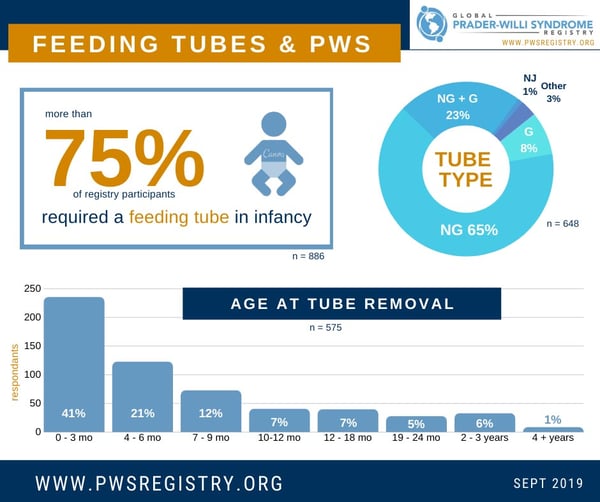For parents of an infant with PWS, one of the first major challenges they face is feeding difficulties and having their baby consume enough nutrition and calories. Data from the Global PWS Registry shows that more than 75% of registry participants required a feeding tube in infancy.
The most common type of feeding tube used in infants with PWS is a nasogastric tube (NG-tube), which goes through the nose to carry food into the stomach. The second most common type of feeding tube used is a gastrostomy tube (G-tube), which is a portal in the abdomen that delivers food directly into the stomach (also referred to a PEG tube). More rarely, other types of feeding tubes be used, including naso-jejunal (NJ) tube, which goes from the nasal cavity through the stomach and into the small intestine.

For registry participants that have had a feeding tube, 65% received only an NG-tube, and 8% received only a G-tube. There is a group of 23% that received both (at different times). Of those with feeding tubes, more than 60% were off of all feeding tubes by 6 months of age, and more than 80% were off of all feeding tubes by 1 year of age. However, there is a subset of registry participants who required feeding tubes past that time, even at 2-4 years old.
You can find more information about the Global PWS Registry on our website, or by visiting the registry at www.pwsregistry.org. You may also email our registry administrator here.








